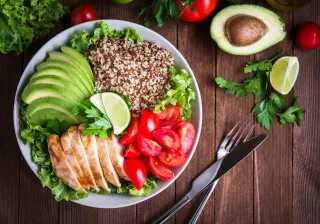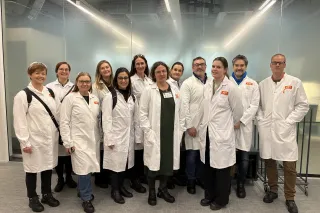Writing this blog in my home-office (which is now the “new norm”) while eating my rye bread sandwich reminded me of what Mary Frances Kennedy Fisher, a great food writer once said: “First we eat, then we do everything else.” There is no doubt that food is vital for our body to grow, develop and function, and simply to survive. However, its significance goes beyond mere survival: it means experience, sharing, indulgence, pleasure, culture, memories and much more.
The ongoing COVID-19 pandemic is generating multiple waves of unprecedented local and global impacts. It has exposed many systemic vulnerabilities to healthcare services, the economy and to normal functioning of society. Through the rapid and devastating expansion of COVID-19, we have experienced the importance of our food and agriculture system to our survival and how vulnerable the system is to natural or human-caused disasters.
The impact of COVID-19 on agriculture, transportation, the food supply chain, labor market and consumer behavior will disrupt fundamental economic balances in the food system. The effect of COVID-19 on the food system and economy will not be momentary but extend into the coming years and the instantaneous effects are likely to be different from long-term impacts. Some even predict the end of globalization, with permanent disruptions to trade flows pushing countries towards a more local economy.
An example of market adjustment is the price increase of wheat and rice due to escalated consumer demand for non-perishable staples such as flour, pasta, and bakery products. In contrast, travel restrictions and lock downs in homes have disrupted the demand for oil and reduced the need for corn and soy to be used as a raw material for biofuel production, making the volumes abundant for sugar and vegetable oil production and reducing the market prices for those commodities. Similarly, in some countries such as the USA, meat prices have increased as a result of meat processing plant slow-downs and shut-downs due to COVID-19.
The current pandemic has brutally taught consumers how important a secure and safe food supply is. Their food awareness has rocketed during the past 6-8 months. In a recent Food & Health Survey carried out by the International Food Information Council in the USA, 85% of consumers said that the coronavirus pandemic has changed their food habits: where they cook, eat and shop and how they think about food. Consumers have opted more for plant-based protein sources either due to limited access to meat, environmental concerns, or simply to eat more healthily.
The pandemic is terrorizing our lives. The way we act now will shape the global economy for the next decade. We have to analyze how and to what extent our current food system has been strained and take actions to mitigate the future effects of the crisis on consumer behavior, food supply, delivery, logistics and manufacturing. We need to find ways to ensure the functionality of the food system in every situation, working together and synergistically with all food actors in the value chain. This is the only way-out to ensure food availability for people, and to create new business and export opportunities for Finnish food ecosystem companies.
The way we act now will shape the global economy for the next decade.
At VTT we provide smart and sustainable solutions to enable the more efficient use of natural resources with new ingredient and food technologies, e.g. plant-based raw materials; adapting applications of cellular agriculture and biotechnology in ingredient and food design. We are integrating consumer insight to support sustainable food consumption and we are utilizing agile manufacturing, sensing solutions and data analytics as enabling technologies towards a consumer-centric food system.
My first blog ends here, now I will go out for a walk in the forest to hunt for some chanterelles and to relax my mind to cope with the “new-norm”.








